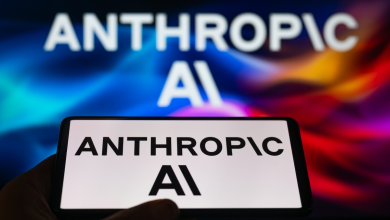Will ChatGPT have ads soon? OpenAI CFO says they are thinking about it

As OpenAI is restructuring to a for-profit model, the company is looking for ways to increase its revenues, and it’s choosing the fastest route: advertisements.
In Short
- OpenAI considers ad model to boost revenue amid restructuring
- Revenue mainly from ChatGPT Plus subscriptions and APIs
- Ads could raise privacy concerns and disrupt user experience
As the ChatGPT-maker, OpenAI, is restructuring itself to a for-profit model from its existing non-profit structure –– which has also been the bone of contention for Elon Musk –– the company is naturally looking for ways to up its revenues. What is the quickest way to do that? Advertisements. OpenAI’s chief financial officer (CFO), Sarah Friar, told the Financial Times in an interview that the company is mulling over introducing an advertisement model. She says, however, the company plans to be “thoughtful about when and where” the ads are implemented.
Interestingly, soon after the interview with the FT, Friar—probably fearing backlash—released a statement saying, “while we’re open to exploring other revenue streams in the future, we have no active plans to pursue advertising.”
Currently, OpenAI primarily generates revenue through its ChatGPT Plus subscription service. The platform also makes money from ChatGPT APIs, allowing developers to create applications using the company’s AI technologies. Despite projections of $3.7 billion in revenue for 2024, OpenAI is expected to face a significant cash burn of around $5 billion this year, driven by high operational costs, including server infrastructure and employee salaries.
At the moment, the company is also transitioning to a for-profit structure and exploring the online search market with its AI-powered search engine, which is also set to compete with Google. Reportedly, OpenAI has recently recruited advertising experts from leading tech companies like Meta and Google, suggesting that advertisements may soon appear on ChatGPT.
The advertising model has become popular for companies aiming to generate quick revenue. Platforms like WhatsApp, Instagram, and Facebook have embraced ads, creating a steady income stream by leveraging their massive user bases. Ad revenues have many upsides. They offer free or low-cost services to users while maintaining profitability for the company. Ads can also provide users with relevant products or services tailored to their preferences.
However, integrating ads comes with challenges. One significant concern is user privacy, as targeted advertising often relies on collecting and analysing user data. This raises ethical and regulatory questions about how companies handle sensitive information. Additionally, ads can disrupt the user experience, making services feel cluttered or intrusive. For OpenAI, introducing ads may spark similar debates, especially since users have grown accustomed to ad-free interactions with its AI products.




